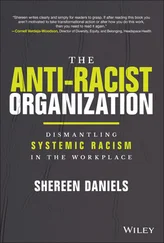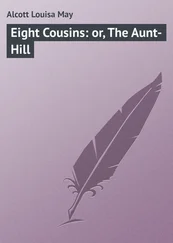Hold you, my father, in your guiltless hands:
In me ’tis impious holy things to bear,
Red as I am with slaughter, new from war,
Till in some living stream I cleanse the guilt
Of dire debate, and blood in battle spilt.’
Thus, ord’ring all that prudence could provide,
I clothe my shoulders with a lion’s hide
And yellow spoils; then, on my bending back,
The welcome load of my dear father take;
While on my better hand Ascanius hung,
And with unequal paces tripp’d along.
Creusa kept behind; by choice we stray
Thro’ ev’ry dark and ev’ry devious way.
I, who so bold and dauntless, just before,
The Grecian darts and shock of lances bore,
At ev’ry shadow now am seiz’d with fear,
Not for myself, but for the charge I bear;
Till, near the ruin’d gate arriv’d at last,
Secure, and deeming all the danger past,
A frightful noise of trampling feet we hear.
My father, looking thro’ the shades, with fear,
Cried out: ‘Haste, haste, my son, the foes are nigh;
Their swords and shining armor I descry.’
Some hostile god, for some unknown offense,
Had sure bereft my mind of better sense;
For, while thro’ winding ways I took my flight,
And sought the shelter of the gloomy night,
Alas! I lost Creusa: hard to tell
If by her fatal destiny she fell,
Or weary sate, or wander’d with affright;
But she was lost for ever to my sight.
I knew not, or reflected, till I meet
My friends, at Ceres’ now deserted seat.
We met: not one was wanting; only she
Deceiv’d her friends, her son, and wretched me.
“What mad expressions did my tongue refuse!
Whom did I not, of gods or men, accuse!
This was the fatal blow, that pain’d me more
Than all I felt from ruin’d Troy before.
Stung with my loss, and raving with despair,
Abandoning my now forgotten care,
Of counsel, comfort, and of hope bereft,
My sire, my son, my country gods I left.
In shining armor once again I sheathe
My limbs, not feeling wounds, nor fearing death.
Then headlong to the burning walls I run,
And seek the danger I was forc’d to shun.
I tread my former tracks; thro’ night explore
Each passage, ev’ry street I cross’d before.
All things were full of horror and affright,
And dreadful ev’n the silence of the night.
Then to my father’s house I make repair,
With some small glimpse of hope to find her there.
Instead of her, the cruel Greeks I met;
The house was fill’d with foes, with flames beset.
Driv’n on the wings of winds, whole sheets of fire,
Thro’ air transported, to the roofs aspire.
From thence to Priam’s palace I resort,
And search the citadel and desart court.
Then, unobserv’d, I pass by Juno’s church:
A guard of Grecians had possess’d the porch;
There Phoenix and Ulysses watch prey,
And thither all the wealth of Troy convey:
The spoils which they from ransack’d houses brought,
And golden bowls from burning altars caught,
The tables of the gods, the purple vests,
The people’s treasure, and the pomp of priests.
A rank of wretched youths, with pinion’d hands,
And captive matrons, in long order stands.
Then, with ungovern’d madness, I proclaim,
Thro’ all the silent street, Creusa’s name:
Creusa still I call; at length she hears,
And sudden thro’ the shades of night appears—
Appears, no more Creusa, nor my wife,
But a pale specter, larger than the life.
Aghast, astonish’d, and struck dumb with fear,
I stood; like bristles rose my stiffen’d hair.
Then thus the ghost began to soothe my grief
‘Nor tears, nor cries, can give the dead relief.
Desist, my much-lov’d lord,’t indulge your pain;
You bear no more than what the gods ordain.
My fates permit me not from hence to fly;
Nor he, the great controller of the sky.
Long wand’ring ways for you the pow’rs decree;
On land hard labors, and a length of sea.
Then, after many painful years are past,
On Latium’s happy shore you shall be cast,
Where gentle Tiber from his bed beholds
The flow’ry meadows, and the feeding folds.
There end your toils; and there your fates provide
A quiet kingdom, and a royal bride:
There fortune shall the Trojan line restore,
And you for lost Creusa weep no more.
Fear not that I shall watch, with servile shame,
Th’ imperious looks of some proud Grecian dame;
Or, stooping to the victor’s lust, disgrace
My goddess mother, or my royal race.
And now, farewell! The parent of the gods
Restrains my fleeting soul in her abodes:
I trust our common issue to your care.’
She said, and gliding pass’d unseen in air.
I strove to speak: but horror tied my tongue;
And thrice about her neck my arms I flung,
And, thrice deceiv’d, on vain embraces hung.
Light as an empty dream at break of day,
Or as a blast of wind, she rush’d away.
“Thus having pass’d the night in fruitless pain,
I to my longing friends return again,
Amaz’d th’ augmented number to behold,
Of men and matrons mix’d, of young and old;
A wretched exil’d crew together brought,
With arms appointed, and with treasure fraught,
Resolv’d, and willing, under my command,
To run all hazards both of sea and land.
The Morn began, from Ida, to display
Her rosy cheeks; and Phosphor led the day:
Before the gates the Grecians took their post,
And all pretense of late relief was lost.
I yield to Fate, unwillingly retire,
And, loaded, up the hill convey my sire.”
“When Heav’n had overturn’d the Trojan state
And Priam’s throne, by too severe a fate;
When ruin’d Troy became the Grecians’ prey,
And Ilium’s lofty tow’rs in ashes lay;
Warn’d by celestial omens, we retreat,
To seek in foreign lands a happier seat.
Near old Antandros, and at Ida’s foot,
The timber of the sacred groves we cut,
And build our fleet; uncertain yet to find
What place the gods for our repose assign’d.
Friends daily flock; and scarce the kindly spring
Began to clothe the ground, and birds to sing,
When old Anchises summon’d all to sea:
The crew my father and the Fates obey.
With sighs and tears I leave my native shore,
And empty fields, where Ilium stood before.
My sire, my son, our less and greater gods,
All sail at once, and cleave the briny floods.
“Against our coast appears a spacious land,
Which once the fierce Lycurgus did command,
(Thracia the name—the people bold in war;
Vast are their fields, and tillage is their care,)
A hospitable realm while Fate was kind,
With Troy in friendship and religion join’d.
I land; with luckless omens then adore
Their gods, and draw a line along the shore;
I lay the deep foundations of a wall,
And Aenos, nam’d from me, the city call.
To Dionaean Venus vows are paid,
And all the pow’rs that rising labors aid;
A bull on Jove’s imperial altar laid.
Not far, a rising hillock stood in view;
Sharp myrtles on the sides, and cornels grew.
There, while I went to crop the sylvan scenes,
And shade our altar with their leafy greens,
I pull’d a plant—with horror I relate
A prodigy so strange and full of fate.
The rooted fibers rose, and from the wound
Black bloody drops distill’d upon the ground.
Mute and amaz’d, my hair with terror stood;
Читать дальше












